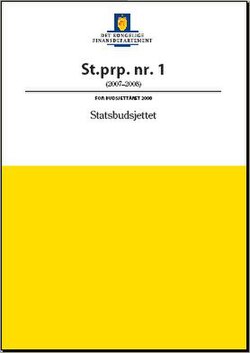This article needs additional citations for verification .(March 2025) |

The State budget of Norway (Norwegian : Statsbudsjettet) is a government budget passed by the Norwegian legislature, Stortinget, each year. It accumulates all income and expenses for the Government of Norway. The document defines the taxes to be collected, and what expenses will be accomplished.
Contents
The budget follows a fiscal year of January 1 to December 31. The proposition for the budget is made by the Ministry of Finance in the first week of October. This proposition is named Storting Proposition no. 1 or Yellow Book and is the governments suggestion for a budget. It is then considered by the Standing Committee of Finance.
If there is a majority government, the budget is normally passed without much change. In case of a minority government, which have been more the rule than the exception since the 1970s, the government party(s) must negotiate with enough opposition parties to pass it in the legislature. The responsibility to audit the accounts is at the Office of the Auditor General of Norway. [1]